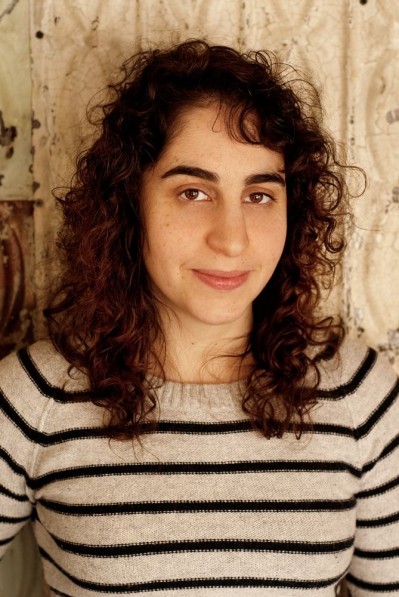We knew the day would come when a gastrognome would crawl out of the woodwork and reveal that he or she had made the ultimate transition: from working for Oprah to working in food. The concept of a dream job gains new heights when a celebrity name (and in this case, the celebrity name) or organization comes after the job title. But Michelle proves that there is always room to be passionate about a new career.
When did you know that you wanted to work in food?
Food wasn't my first career. Back in 2009, I was rounding my third year as a set decorator for "The Oprah Winfrey Show" in Chicago and reached a crossroads. I loved the work, but knew the show wasn't going to air for more than one more season. And I wasn't about to buy throw pillows and hang drapes for anyone other than Oprah.
We started having more cooking-themed shows, and I was working with a handful of celebrity chefs to set up their cooking demos. Helping them to convey the fun and satisfaction of cooking at home really resonated with me.
Meanwhile, a friend signed me up to take a class at a recreational cooking school called The Chopping Block. It was a revelation how confident I felt in the kitchen after learning a few skills. A better grasp of technique made the whole act more rewarding, and certainly tastier. I had found my new career! I enrolled in culinary school and got a part-time job at The Chopping Block.
How did you get your current good food job?
After culinary school, I took an internship at the Food Network in New York. It was great experience, although I missed the direct connection of working with motivated home cooks. So I went to a neighborhood community-supported agriculture meeting to network a little, and someone there recommended The Brooklyn Kitchen. It offered a handful of cooking classes at the time, and I inquired about helping out. Instead, I found a seasonal sales job, and figured that I could convince the owners to let me grow their classes into a proper school. That was November 2010, and after helping out and flexing a little organizational prowess, I was asked to take over the school in January. Now, we put on about 13 classes per week and put on private and public events. We get to provide all levels cooking experience for our community, from classes, public food events, and volunteer opportunities for the food career curios. I like to think that the school has become something of a neighborhood fixture.
How did your previous work or life experience prepare you for a good food job?
Cooking and expressing creativity through shared meals was core to my family dynamic. My father worked and traveled a lot, so we all tried to make time together over food when he was home. We planned diverse dinners together, and my brother and I were brought along in search of new ingredients in other towns. To this day, I can't leave a Chinese market without a box of Poky sticks, our reward for being patient on family shopping trips.
I was raised on the social aspects of home cooking. To me, it's important to enable others to cook together, or search for new flavors to try at home. Cooking is such a part of our social fabric. That's doubly true in a jam-packed city that can feel very lonely at times. Everyone seems so busy here that it's great to convene with friends over food.
What was the greatest obstacle you had to overcome in pursuing your Good Food Job dream?
Stepping into a new career in food meant leaving a community of friends and career connections that I had built over 12 years. Even after culinary school, I felt like I was headed to New York without many career notches in my belt. It was tempting to reach back into my previous career, and maybe get a side gig in set decorating, until I got back on my feet. My fear, though, was that I'd lose momentum rebranding myself in the food world. I didn't want to get pigeonholed in the same career I was happy to leave.
New York is full of people fighting to achieve their goals and that energy gave me momentum to keep at it.
What can you identify as the greatest opportunities in food right now?
There are plenty of opportunities to help simplify the act of cooking at home. Home cooks want to take ownership of what they make. There are a lot of companies that make meal kits, where several pre-measured food packages are combined together to make an entre. This allows the cook to be involved in dinner in half the time they would expect, thus making the home cooked dinner seems more achievable. I'm excited to see how this industry can grow and how busy people can make a meal that is everything from quick, to healthy, to tasty.
If you could be compensated for your work with something other than money, what would it be?
New ingredients! I spend a lot of my time driving around the outer boroughs collecting new foods to see how they cook up. Most of my "walking-around money" goes to things like fermented Chinese sausage and amchoor (dried mango) powder.









